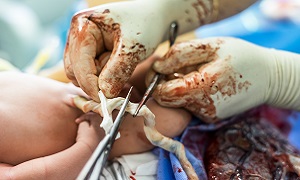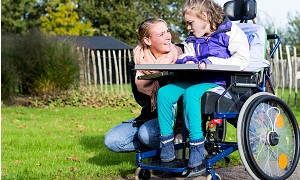Congenital Limb Defect Correction
Congenital Limb Defect is a medical condition or a birth defect that occurs in unborn babies where the entire upper or lower limb or a section of the limbs fails to form or grow normally leading to limb abnormalities or defects, as commonly known in the growing fetus.
Corrective measures for this condition vary from child to child with the overall corrective procedure aiming to help the child grow up and lead a normal life with the deformity.
Treatment techniques may range from surgical procedures to prosthetics or rehabilitation therapy.
Types of Limb Defects
Primarily there are two types of limb deficiencies, namely,
1. Longitudinal Deficiency- In this condition, there is either partial or complete absence of elements like radius fibula or tibia within the limb.
2. Transverse- In this condition, a portion of the element within the length of the limb is present, but only to a certain point and hence the limb may resemble an amputation stump due to the selective presence of elements in the limb.
Other types may include preaxial polydactyly, a classic example for which can be an extra finger, which may or may not be fully formed. In some rare cases, an extra duplicate ring, middle or index finger can be formed due to central polydactyly and Syndactyly is the webbing of fingers or toe, which is also considered a limb deformity or defect. The doctors or the medical team will help you understand the exact type of defect your child has and a medical treatment method or correction would be suggested based on the condition of the child.
General causes of Congenital Limb Defects
The exact cause for this condition cannot be pinpointed as of yet. However, medical professionals have researched some general causes that tend to cause congenital limb defects in babies. Some of them are-
- Unhostile uterine environment for the baby
- Genetic Conditions passed on by the heredity
- Growth restrictions or unfavourable conditions that affect the fetus development and growth within the uterus.
- Exposure to chemicals while still in the womb
- Intake of certain harsh or strong medications by the mother during pregnancy
Risks Factors for Congenital Limb Defects
Medical professionals list certain risks that might increase the chances of limb deformities or physical defects in unborn babies. Some of them are-
- Tobacco Exposure during pregnancy
- Chemical Exposure during pregnancy
- Mechanical Forces during pregnancy
Diagnosis
Diagnosis of the condition is done immediately after the birth of the baby. Usually, doctors may prescribe X-ray or genetic testing to determine underlying bone conditions or undiagnosed symptoms.
Possible correction or treatment methods
Treatment or corrective measures for this condition depends on the child’s age, weight and general health conditions. Other factors to be considered before deciding on the treatment method includes the baby’s tolerance to medications or therapies and the type of deformity the baby is suffering.
The usual treatment method includes:
Surgery
Prosthetics
Prosthetics are usually recommended for conditions where the entire limb along with its elements are missing.
Rehabilitation
The primary goal for congenital limb defect correction is to-
- Help the child develop the feeling of independence
- Help the child get accustomed to their lifestyle and normal routine despite the condition
- Ensure normal development of the child is not restricted due to this condition
- Cosmetically improve the overall outlook and convenience of the child
- Encourage the child to participate in self-care
Post treatment care & precaution
The initial days can be quite tough, not just for the patient, but for his or her family too. However, helping your child get used to independence and self-care from the very beginning is important since habit-forming attitudes at a tender age stick to you for the rest of your life. Families may try physical therapy at home or through a professional, based on doctor’s recommendations. Families are requested to wholeheartedly support the child suffering the defects and actively help them overcome daily activities or hurdles.
FAQs
What are the chances of my baby having congenital Limb Defect?
Currently, the statistics say 7.9/10,000 live babies can suffer from this condition.
Can ultrasound detect defects in unborn babies?
Ultrasound can often detect physical defects in the unborn baby, so chances are that conditions like congenital limb defects can be easily spotted during the later stages of the pregnancy. However, defects in the kidney, heart, or even certain cleft palate situations go unnoticed in ultrasound.
Can these limb defects be inherited?
95% of limb defects are not based on heredity or family history. However, certain conditions like extra toes or fingers can be due to inherited genes.



